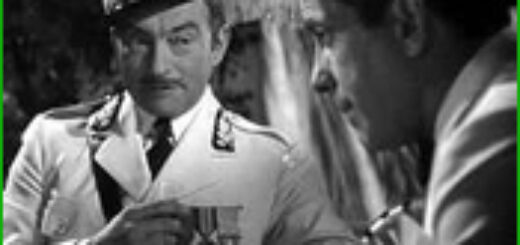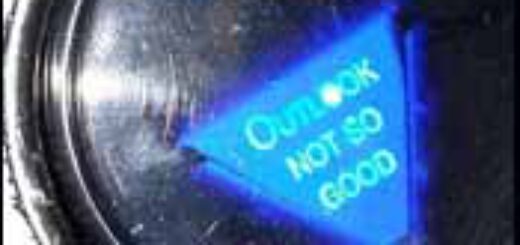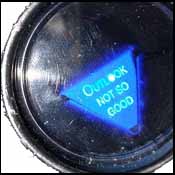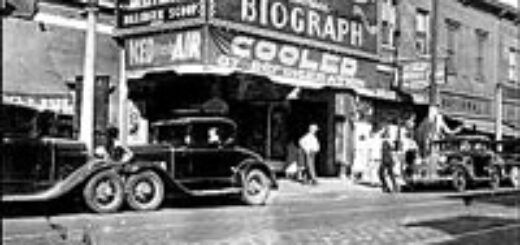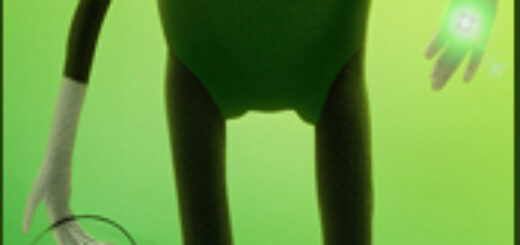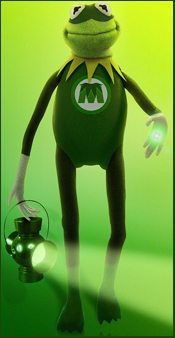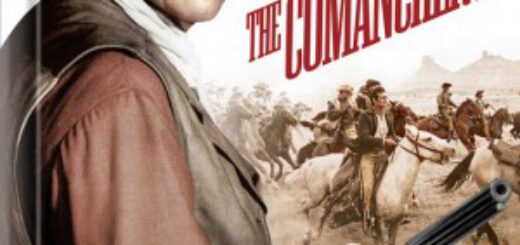JOHN OSTRANDER: Casablanca At 70 – You MUST Remember This
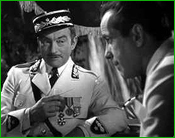 SPOILER WARNING: I’m assuming that people reading this have seen the movie and thus will be free with me discussing elements of the plot. If you’re one of those who haven’t, do yourself a favor and DON’T READ THIS. See the movie instead and have your own experience with it. Trust me. You’ll be glad you did. If you need a plot synopsis, IMDB has a good one here.
SPOILER WARNING: I’m assuming that people reading this have seen the movie and thus will be free with me discussing elements of the plot. If you’re one of those who haven’t, do yourself a favor and DON’T READ THIS. See the movie instead and have your own experience with it. Trust me. You’ll be glad you did. If you need a plot synopsis, IMDB has a good one here.
The movie Casablanca turns 70 this year and, to celebrate, Warner Bros is releasing it on Blu-Ray on March 27 and is also showing it, one night only, in selected movie theaters across the country on March 21. I’ve already got the tickets for Mary and myself.
I’ve seen the film at least twice now on the big screen and look forward to seeing it again – I’ve watched it countless number of times on DVD but the experience on the big screen is matchless. Those incredible close-ups of the three stars at the climax of the film are so stunning on a large screen.
My first experience with Casablanca, fortunately, was a showing at a second run small movie theater in Chicago (the 400) in an inspired double bill with Woody Allen’s Play It Again, Sam. I had put off seeing the film for the same reason I put off seeing or reading or listening to many things that I would later love – because people told me I had to see/read/listen to something and sometimes I’m a pig-headed idiot.
This was an audience that knew and loved the movie; they cheered and laughed at the best lines and scenes. In the famous dueling anthems scene, some audience members sang the Marseilles and the entire audience erupted into cheers when the French anthem triumphed over the Nazis. It was electrifying for the audience as well as the characters. What a great introduction to the film.
Over the years I’ve watched and became aware of different fine points of the movie. It was very much a picture of its time and reflected a reborn patriotism that came with the War effort. In a scene where Humphrey Bogart’s character, Rick, is waiting for Ingrid Bergman’s character, Ilsa, to come back to his nightclub after hours, he’s getting seriously drunk and asks his piano player and confidant, Sam (Dooley Wilson), “If it’s 1941 in Casablanca, what time is it in America?” That line isn’t just drunken slosh.
Earlier in the movie, Rick okays a credit slip dated December 2, 1941. It sets the events of the movie five days before the Japanese bomb Pearl Harbor causing the United States entrance into World War II. Prior to this, much of America is isolationist and Rick embodies that. He “sticks his neck out for nobody.” He’s cynical and aloof; he never drinks with customers or employees. That all changes before the end of the film.
The fulcrum of change is the return of Ilsa, Rick’s former love in Paris before the Nazis matched in. You can’t much blame Rick for being in love with her; as played by a young Ingrid Bergman, Ilsa is radiant. Rick, however, has been burned. He was jilted by Ilsa just as they were to leave Paris together.
Rick’s change comes late in the film when he and Ilsa have been reconciled and she declares that she still loves him. Torn, upset, she tells Rick that he will have to decide for her, for everyone involved. Rick simply says, “Okay. I will.” That, however, changes everything. At that moment Rick becomes the man of action once more and everything moves forward at a gallop towards the climax.
Rick disposes of all his holdings. We assume it’s because he’s going off with Ilsa but that’s not his goal; he’s getting her out of Casablanca (along with her husband). He’s not out to kill the villainous Nazi Strasser (even though he does). He expects to wind up in jail, a concentration camp, or dead. That, more than anything else, marks him as a real hero – the degree to which he is willing to sacrifice himself.
There’s more to be said about Casablanca and I’ll say them next week. Until then – here’s looking at you, kid.
MONDAY: Mindy Newell, R.N., CNOR, C.G. (Comic Geek)

